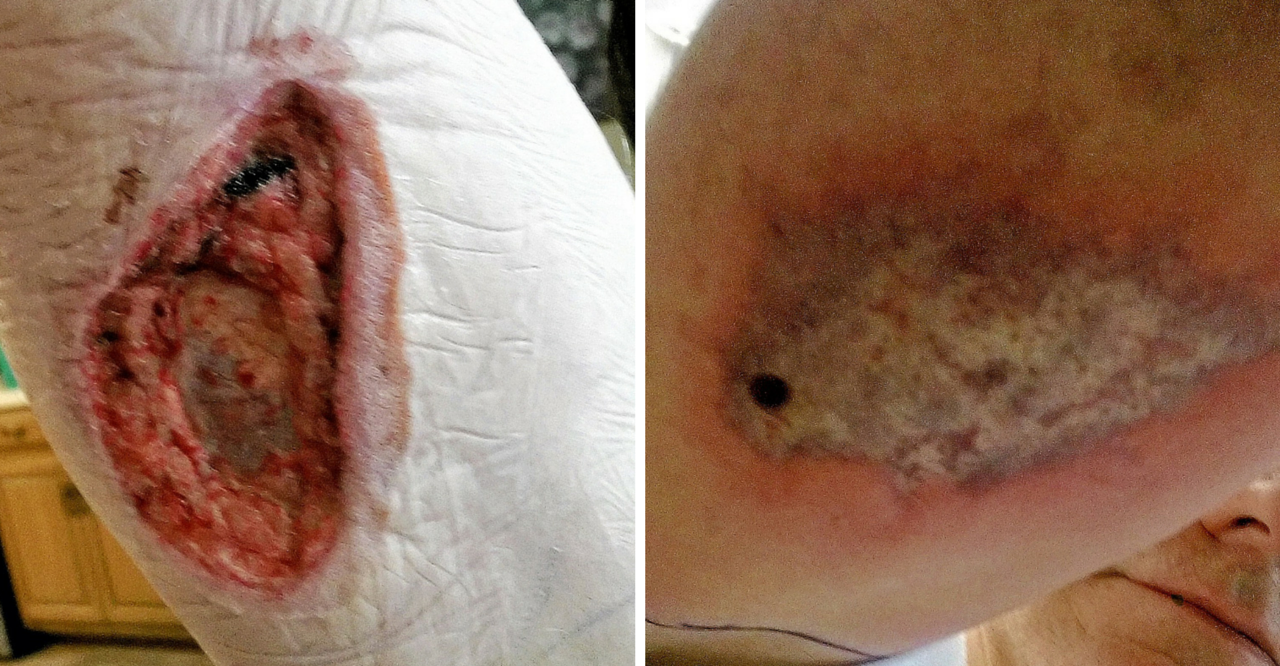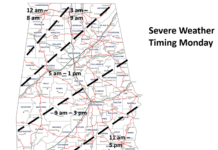CULLMAN – As the summer months roll on gardening and adventures in the woods become a pastime. Unfortunately, this also means a higher likelihood of coming into contact with dangerous snakes and insects. Insects such as spiders are especially dangerous.
According to Neil Schamban, MD, FACEP Chief Executive Officer at Island Medical Management, “Spider bites overall are more frequent but generally less severe. However, there are certain spiders such as black widows that can be more severe. Also, certain spiders, such as the brown recluse can have delayed tissue destruction which can be significant. The overall message is the same, however, with a spider bite you may consider your primary care physician or an urgent care before coming to an emergency department. If there are any symptoms that are rapid, then coming to the closest emergency room is paramount.”
Most of the people that are bit by a brown recluse do not know when they get bit.
David Brock, a victim of a brown recluse spider, told his story, “Monday, May 4, I got up and held my arm up in the mirror and thought I had bruised myself. The night before, the sheets rubbed across my arm, and I felt like I had been cut across somewhere. I got bit across my triceps so I couldn’t really see it. My wife thought I had been bit and wanted me to go to the doctor.”
After going to Urgent Care, Brock was sent to a surgeon. Brock had to wear a wound V.A.C., which is a small, portable device that has a tube keeping constant pressure on the wound.
It was kept on for about two weeks, and home health checked it every other day. It took him almost six weeks to recover from the bite. The whole experience was not only painful but also quite expensive.
Snakes are even more harmful. Schamban claimed, “Spider bites are more common and occur regularly. Snake bites are less common but still an expected emergency to recognize and treat.”
The number of deaths due to spider and snake bites cannot be released since that is HIPPA protected information.
The frequent occurrence of snakes in the summer is mainly due to their revulsion to heat. They prefer to stay cool and concealed.
Matt Brock, a Wildlife Biologist for the Alabama Division of Wildlife and Freshwater Fisheries, stated, “Many of the snakes like to crawl around when it’s not during the hottest time of the day. So early morning, late afternoon or at night is generally when they are out. Just watch your step. Copperheads and rattlesnakes blend in very well. They’re often times very hard to see.”
Brock claimed the most common venomous snakes in Cullman County are the Copperhead and Timber rattlesnake. He suggested ways to keep snakes away from your house.
“As far as being around the house, I generally tell people to cleanup clutter if you are worried about snakes. If you have wood piles, or piles of junk in your yard just clean those up,” Brock said. “Get them away from the house, they come to those type of things and the rodents that are there, which is their food source.”
Brock manages wildlife habitats in Winston County and has a wealth of experience with snakes in this area. Brock warned about the dangers surrounding gardens and children.
“The main thing, in flower gardens and things like that, don’t put your hands in places you cannot see. Especially make sure you can see everything because snakes like to stay hidden,” Brock said.
“So if you’re working in your garden just be careful where you place your hand. So kids and pets; I have three kids myself, and I generally tell them to stay close to the house and don’t go wandering in the woods since they’re so young.”
“The existing number of different species is very broad and rarely do people actually see what bit them. They come to the ER because of the symptoms of the bite,” Schamban stated.
“That is how we recognize the fact that there was an envenomation. Regionally, there are differences and certain bites such as a black widow has more telltale symptoms. Many bites by either snakes or insects produce symptoms which include local swelling, edema, pain and tissue destruction.”
Schamban explained, “First, they should not panic. They should then find the fastest method of coming to the closest emergency department. Some snake bites require immediate treatment with antivenin. Some do not. Observation, supportive care, antivenin, hospital admission, antibiotics can all play a role in the care of a snake bite. Placing a tourniquet is not advised because if it is placed incorrectly, left on too long, or placed too tightly, the damage can be greater than the actual bite itself.”
Simple ways to help stay safe:
• Wear long pants
• Apply insect repellant
• Keep grass cut
• Take care when reaching into dark areas such as a canoe or under a dock




















